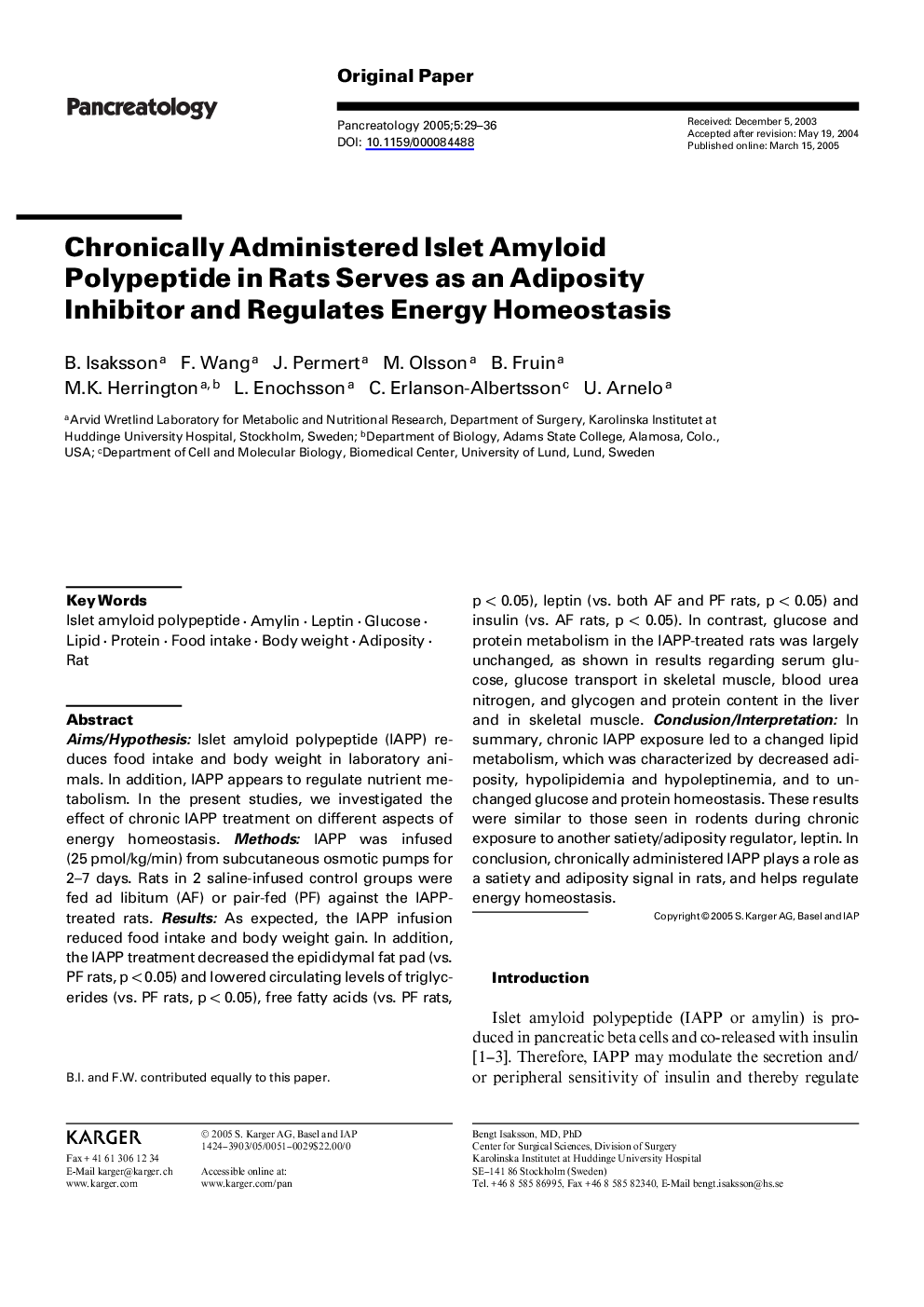| Article ID | Journal | Published Year | Pages | File Type |
|---|---|---|---|---|
| 9256167 | Pancreatology | 2005 | 8 Pages |
Abstract
Aims/Hypothesis: Islet amyloid polypeptide (IAPP) reduces food intake and body weight in laboratory animals. In addition, IAPP appears to regulate nutrient metabolism. In the present studies, we investigated the effect of chronic IAPP treatment on different aspects of energy homeostasis. Methods: IAPP was infused (25 pmol/kg/min) from subcutaneous osmotic pumps for 2-7 days. Rats in 2 saline-infused control groups were fed ad libitum (AF) or pair-fed (PF) against the IAPP-treated rats. Results: As expected, the IAPP infusion reduced food intake and body weight gain. In addition, the IAPP treatment decreased the epididymal fat pad (vs. PF rats, p < 0.05) and lowered circulating levels of triglycerides (vs. PF rats, p < 0.05), free fatty acids (vs. PF rats, p < 0.05), leptin (vs. both AF and PF rats, p < 0.05) and insulin (vs. AF rats, p < 0.05). In contrast, glucose and protein metabolism in the IAPP-treated rats was largely unchanged, as shown in results regarding serum glucose, glucose transport in skeletal muscle, blood urea nitrogen, and glycogen and protein content in the liver and in skeletal muscle. Conclusion/Interpretation: In summary, chronic IAPP exposure led to a changed lipid metabolism, which was characterized by decreased adiposity, hypolipidemia and hypoleptinemia, and to unchanged glucose and protein homeostasis. These results were similar to those seen in rodents during chronic exposure to another satiety/adiposity regulator, leptin. In conclusion, chronically administered IAPP plays a role as a satiety and adiposity signal in rats, and helps regulate energy homeostasis.
Related Topics
Health Sciences
Medicine and Dentistry
Gastroenterology
Authors
B. Isaksson, F. Wang, J. Permert, M. Olsson, B. Fruin, M.K. Herrington, L. Enochsson, C. Erlanson-Albertsson, U. Arnelo,
